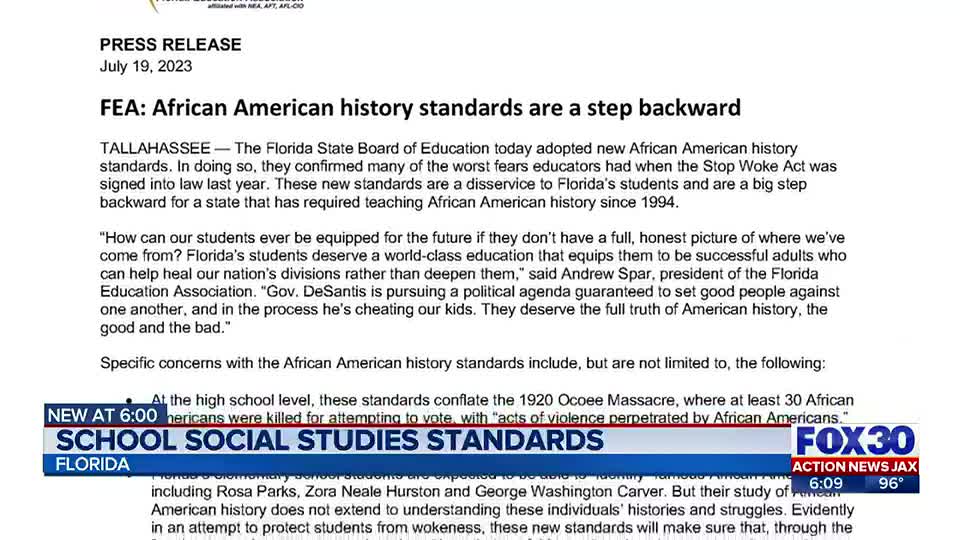The new Black history curriculum in Florida has been a topic of controversy since its introduction. The curriculum has been criticized for its portrayal of slavery and the role of enslaved people in American history. The new standards require middle schoolers to be instructed that “slaves developed skills which, in some instances, could be applied for their personal benefit” . The new teaching standards have again thrust Florida and Ron DeSantis into America’s politically polarized fight over how and what to teach children . Black leaders and Democrats — and some Republicans — are using the issue to hammer Gov. Ron DeSantis and his White House ambitions . The DeSantis administration, meanwhile, is attempting to characterize criticisms of the history standards as dishonest and a political stunt perpetrated by Democrats like Vice President Kamala Harris to tarnish Florida .
The new Black history curriculum has been a topic of debate among educators, parents, and students alike. While some argue that the new curriculum is a step in the right direction, others believe that it falls short of providing a comprehensive understanding of Black history.
On one hand, the new curriculum acknowledges the contributions of Black Americans to American history. It recognizes the role of slavery in shaping the country and the impact of systemic racism on Black communities. It also highlights the achievements of Black Americans in various fields, including science, politics, and the arts.
On the other hand, the new curriculum has been criticized for its portrayal of slavery and the role of enslaved people in American history. Critics argue that the curriculum downplays the brutality of slavery and portrays enslaved people as passive victims rather than active agents of change. They also argue that the curriculum fails to address the ongoing impact of systemic racism on Black communities.
In conclusion, the new Black history curriculum in Florida is a complex issue with valid arguments on both sides. While the curriculum acknowledges the contributions of Black Americans to American history, it falls short of providing a comprehensive understanding of Black history. A more nuanced approach that recognizes the complexity of Black history and the ongoing impact of systemic racism on Black communities is needed.
As for the title of the blog post, how about “The New Black History Curriculum in Florida: A Step Forward or a Step Backward?”?





